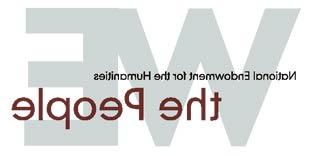Non-consumption and Non-importation
介绍
American colonists have much to celebrate in 1766. 印花税法案 has been repealed, and the Sons of Liberty have proven their ability to mobilize the colonies against Parliament. By 1767, celebration gives way to renewed concern. Charles Townshend becomes Chancellor of the Exchequer, and rumors of new tax measures are soon circulating in Britain and America.
The colonies suffer a financial depression throughout the 1760s. Trade is slow, cash is in short supply, and debt (especially to Britain) is on the rise. In the fall of 1767, Boston selectmen hope to alleviate the crisis when they urge citizens to "save your money and save your country!" Women play a key role in colonial attempts to curb the growing debt to Great Britain. 灵巧的抄写笔 给女士们的演说 extolling the benefits—both economic and amorous—of boycotting British goods.
On 20 November 1767, 汤森法案 take effect in America. Colonists must now pay duties on glass, paper, lead, paint, and tea imported from Britain. The existing non-consumption movement soon takes on a political hue as boycotts are encouraged both to save money and to force Britain to repeal the duties. Merchants consider organizing a non-importation movement, hoping a decrease in the sale of British goods will force their British counterparts to advocate for repeal. 在波士顿 merchants vote to block English trade 1768年3月. Bostonians then struggle to formulate a colony-wide non-importation scheme, as patriots continue to promote non-consumption by alerting the public to 茶的政治.
After vowing to suspend trade with non-participating colonies, Boston merchants finally persuade traders in New York, 费城, and other ports to join the boycott. Meanwhile, Boston consumers are urged to 抵制无耻的头 and other shops that continue to sell imported goods. Patriotic colonists are expected to purchase goods 美国制造. Homespun clothing becomes a badge of patriotism and spinning and weaving parties become politically charged social engagements for daughters of liberty.
Although patriots like to claim otherwise, not everyone subscribes to the non-importation and non-consumption movements. Some colonists agree to them in principle yet continue to purchase, import, or sell British goods. 1769年8月, 贸易违规者被曝光 在头版上 波士顿纪事报. News of the violations has a devastating effect on the boycott, as do importing merchants who scoff at patriots and their search for “任何微不足道的包裹” 里面可能有违禁品.
The non-importation agreement is set to expire on 1 January 1770. Many merchants want out: they have warehouses full of British goods to sell and they are eager to resume their trade. 希望能证明他们 对事业的热情—despite the violators in their midst—Bostonians write to Massachusetts' colonial agent in London assuring him that they are as determined as ever to force Parliament's hand.
Throughout 1770, merchants in Boston try in vain to extend the non-importation agreement. In May, they learn that Parliament has repealed the Townshend duties (except the duty on tea). The non-importation movement quickly collapses, and colonists are even the most patriotic colonists are eager to consume their British luxuries once again. 到1770年10月, 非进口已死但不会太久.
罗的革命
"Met the Merchants at the Town House in Representatives Room - agreed to the Resolutions of the City of New York - not to write for any Goods after the first of June, nor Import any after the first of June, nor Import any after the first Day of October, until the Act Imposing Duties on Glass, 纸 &C被废除."






![Broadside, William Jackson, an Importer: at the Brazen Head [Boston: 1768]](/database/images/740wjackson_th.jpg)






